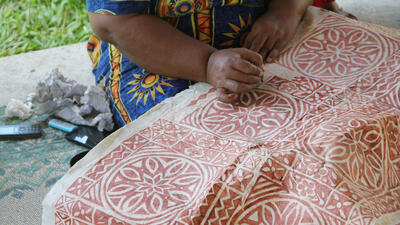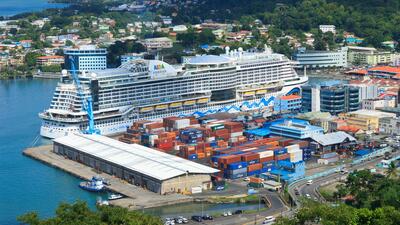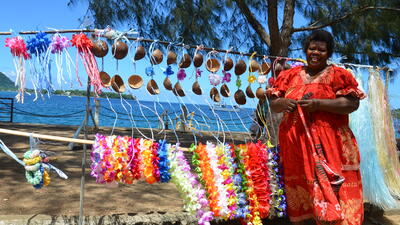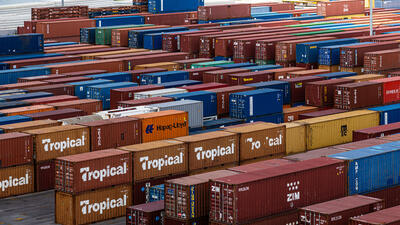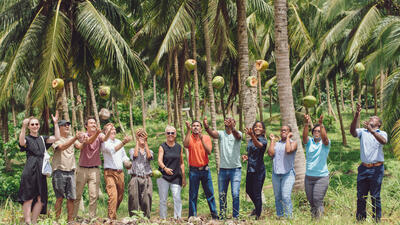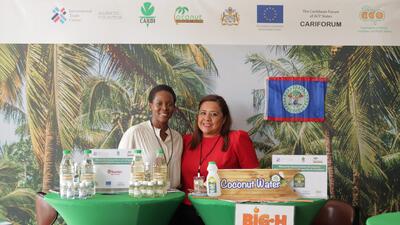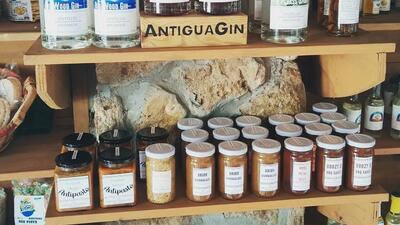
Sell a story and provide a dream
How small businesses in small island developing States can achieve their full potential
In the words of the Dominican poet Pedro Mir, I am proud to have been born in a “…country in the world situated right in the sun’s path. A native of the night. Situated in an improbable archipelago…”.
Being from the West Indies, I am often surprised when I come across statements that claim enterprises in developing countries spur little innovation.
Throughout my life I have had the privilege of working with, and on behalf of, micro and small businesses in small island developing States (SIDS). This has led me to work for a wide range of institutions where the contexts were different, but the lessons remained the same: small businesses from SIDS must constantly adapt, think creatively, and find tailored solutions to survive.

Businesspersons from SIDS are confronted with specific challenges, including high exposure to climate change impact and extreme weather phenomena, as well as supply side constraints and economies of scale. It is precisely this need for innovation and resilience that demonstrates why these small businesses continue to be a “force for good” for their communities.
But the burden of resilience cannot fall on small businesses alone, and even the most innovative among them run up against rules outside their area of influence.
We are living in unprecedented times. Globalization is placing a great strain on small businesses: not only do they face increased competition at home, but their preferential access to traditional markets is being eroded.
Policymakers must make a paradigm shift when drafting competitiveness policies which affect small business in our islands.
In addition, technological innovations have shrunk the dimensions of time and space, bringing added challenges for small businesses, including needed but costly adaptations. Modern consumers have become accustomed to immediate responses, pushing already stretched businesses to meet stringent demands.
Of course, technology offers vast opportunities by enabling the delivery of products and services to new markets and clients. And small businesses in SIDS can take critical steps to boost their competitiveness that draw on their own inherent strengths.

In this challenging, ever-evolving business environment, small businesses must move away from producing large quantities with low value-added and re-establish their competitiveness in the “Je ne sais quoi” that defines them. They need to forge strategic alliances and translate the “Where”, “What”, and “How” into authentic stories that address target consumers, supplying unique products and services globally. In essence, they should “sell a story and provide a dream”.
The "Where" refers to those market segments in which they have a competitive advantage such as niche, luxury, fair trade, organic, diaspora, and health/lifestyle as well as servicing the national and regional tourism industry with one-of-a-kind experiences. To efficiently target these niche markets, small businesses need to know and understand the trends and expectations of the consumers.
The “What” is the products and services they offer. Rather than just focusing on competitive pricing or volumes these small businesses should highlight the quality and specificity that only they can bring, based on their heritage, traditions, and culture. The registration and protection of intellectual property rights and ancestral knowledge are key in such a process.
The “How” stands for the value proposition, supplying distinctive goods and services that are cost-effective, accessible, and appealing, and when possible, obtaining Geographical Indicators and/or Denomination of Origin. This implies adapting labelling, packaging, and taste to targeted consumers while abiding by quality standards and technical specifications.

The International Trade Centre and its partners stand ready to accompany small businesses and business support organizations from SIDS in this quest for greater competitiveness and global sustainable development. We support with market intelligence and linkages, technical expertise, capacity building, exchange of best practices and financing solutions.
Our joint efforts, including with development partners such as the European Union and the United Kingdom, among others, seek to foster social, economic, and cultural inclusion.
They aim not only to ensure the personal development and well-being of entrepreneurs and the people they support, but also to contribute to more prosperous, peaceful, and fair communities.
The United Nations' 4th International Conference on Small Island Developing States provides a unique opportunity for public and private actors, as well as the international community, to come together, uniting minds and hands with a shared vision of Charting the Course Toward Resilient Prosperity.






